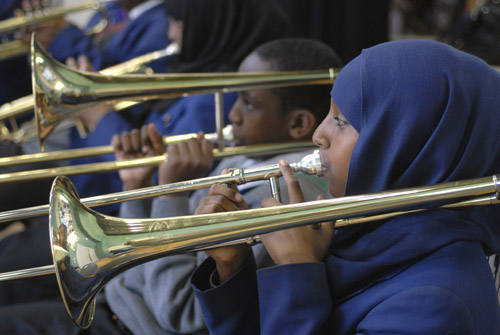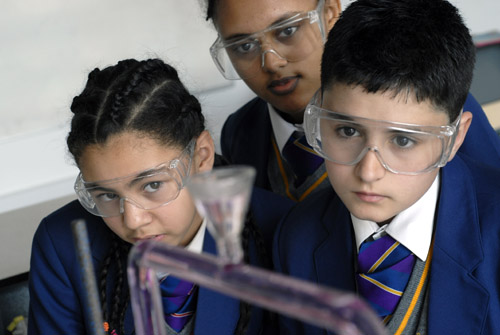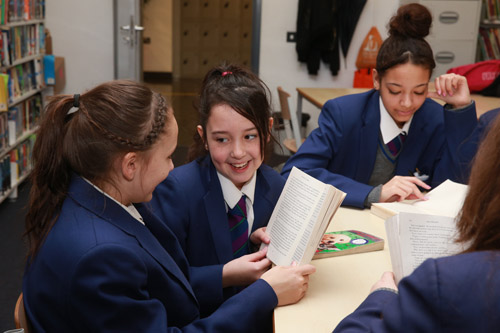We have high expectations for all our pupils and ensure that every learner is challenged and supported to reach their full potential.
PSHE and RE
PSHE (Personal, Social, Health and Economic Education) and RE (Religious Education) are taught throughout all year groups. PSHE education is a school subject through which pupils develop the knowledge, skills and attributes they need to keep themselves healthy and safe, and prepared for life and work. The study of RE supports wider community cohesion and also makes an important contribution to the SMSC (Social, Moral, Spiritual and Cultural) development of pupils, which is embedded into the curriculum.
PSHE and RE at Key Stage 3
Please click here for details.
Religious Studies GCSE
Religious Studies GCSE begins in Year 9 at Platanos College and follows the AQA specification.
The Humanities department aims to ensure that pupils acquire the ability to debate, analyse, evaluate and create judgements based on evidence. Additionally by studying Religious Studies pupils will learn about key ideas that have shaped the world around them and understand key controversies in today’s society.
Pupils begin to look at two different religions in Year 9 to allow them to understand how they shape the believers of each religion.
Christianity
Key beliefs:
- Key beliefs of Christianity e.g. the nature of God, different Christian beliefs about creation and different Christian beliefs about the afterlife and their importance
- Jesus Christ and salvation e.g. beliefs and teachings about the incarnation, the crucifixion, ascension etc.
Practices:
- Worship and festivals e.g. different forms of worship, prayer, sacraments, pilgrimages etc
- The role of the church in the local and worldwide community e.g. missions, Christian Aid etc.
Islam
Key beliefs:
- Key beliefs of Islam e.g. articles of faith and roots of Islam, the oneness of God, the nature of God etc.
- Authority e.g. Prophethood, the Holy Books, imamate in Shi’a Islam etc.
Pupils continue to learn about the key beliefs and practices of religions in Year 10 to allow them to consolidate their understanding of the impact of each religion. They also begin to apply their knowledge of these religions to different controversial topics found in modern life.
Islam
Practices:
- Worship e.g. Five Pillars of Sunni Islam and the Ten Obligatory Acts of Shi’a Islam, Shahadah, Salah and its significance.
- Duties and festivals e.g. Sawm, Zakah, Hajj, Jihad, festivals e.g. Id-ul-Adha etc.
Religion, Relationships and family
- Sex, marriage and divorce e.g. human sexuality, sexual relationships before and outside of marriage, the nature and purpose of marriage, divorce, including reasons for divorce, and remarrying.
- Families and gender equality e.g. the nature of families, the purpose of families, contemporary family issues, gender equality.
- Religion, violence, terrorism and war e.g. the meaning of peace, justice etc., violence, terrorism, Holy war, the Just war theory etc.
- Religion and belief in C20th conflict e.g. religion and belief as a cause of war, nuclear weapons, religion and peace-making, religious responses to victims of war.
Pupils continue to apply their knowledge of different religions to controversial topics found in modern life before consolidating their knowledge of Religious Studies from across all three years.
Religion and life
- The origins of the universe, including: religious and non-religious teachings about the origins of the universe.
- The value of the world and the duty of human beings to protect it.
- Beliefs about death and an afterlife.
- The concepts of sanctity of life and the quality of life in relation to topics such as euthanasia and abortion.
- Human rights e.g. prejudice and discrimination in religion, issues of equality and freedom, of religion, human rights and responsibilities, social justice, racial prejudice, and discrimination and ethical arguments relating to this.
- Wealth and poverty e.g. wealth, the responsibilities of wealth, exploitation of the poor, charity etc.




